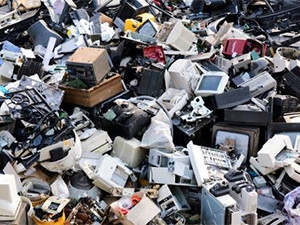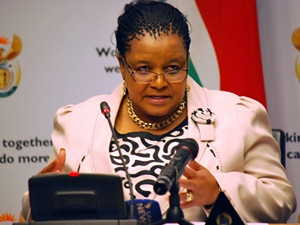
Recycling SA's electronic waste (e-waste) will be a source of new business, job creation and will develop the country's economy, says environmental affairs minister Edna Molewa.
SA has an unemployment rate of 25%, and Molewa says government recognises the potential of the e-waste sector in helping drive job creation and is committed to working with the sector.
"There are opportunities for job creation and poverty alleviation, and entrepreneurial opportunities from a well-planned, strategically resourced, well regulated, managed and controlled e-waste system," she says.
The minister says her department has identified recycling as a way to regulate waste management in the country, and not only protect citizens' health and the environment, but create jobs at the same time.
"Most of the components of e-waste are recyclable. The department has put systems in place for the collection, transportation, sorting and recycling of e-waste," she says.
"We see the waste sector in general and the e-waste sector in particular as a catalyst for socio-economic development. It is the source of new businesses and jobs, as well as an important contributor to us attaining our goals of a cleaner, greener South Africa," Molewa explains.
Hidden gold
ICT veteran Adrian Schofield says government can form a formal e-waste supply chain by training people to educate their local communities.
"An opportunity to elevate indigent people who currently sift through waste on an informal basis into a properly organised workforce will repay the required investment through the value created from recycled materials and the prevention of environmental damage through toxic dumping," he notes.
Meanwhile, the e-Waste Association of South Africa (eWASA) also notes the e-waste epidemic in SA can potentially boost the economy.
According to eWASA, through the establishment of proper recycling facilities, precious metals, including gold, indium and palladium, can safely be reclaimed and re-used.
Dumping ground

Molewa notes the country's government institutions, which include departments, provincial departments, municipalities and state-owned enterprises, generate significant amounts of e-waste.
The minister says e-waste makes up 5% to 8% of municipal solid waste in SA and is growing at a rate three times faster than any other form of waste. This becomes a further challenge because of the lack of proper management facilities for e-waste, which means large amounts of e-waste will be disposed of in landfill sites.
In 2008, e-WASA warned "Africa is becoming a dumping ground for America and Europe under the guise of donations...and if e-waste is not managed, SA could find itself and its people in a high risk health and environmental crisis".
"The challenge in the proper management of e-waste is a result of a lack of recycling infrastructure, inadequate funding, poor legislation, a lack of public awareness and market-based instruments," says Molewa.
Schofield agrees SA does have a serious e-waste problem but this is part of a larger problem of waste management.
"Attention to the value of recycling and to the detrimental effects of certain types of toxic waste has not received the attention from government at all levels that it should. We are only now beginning to see municipalities paying attention to recycling and educating households and businesses into separating waste into categories," he says.
Share